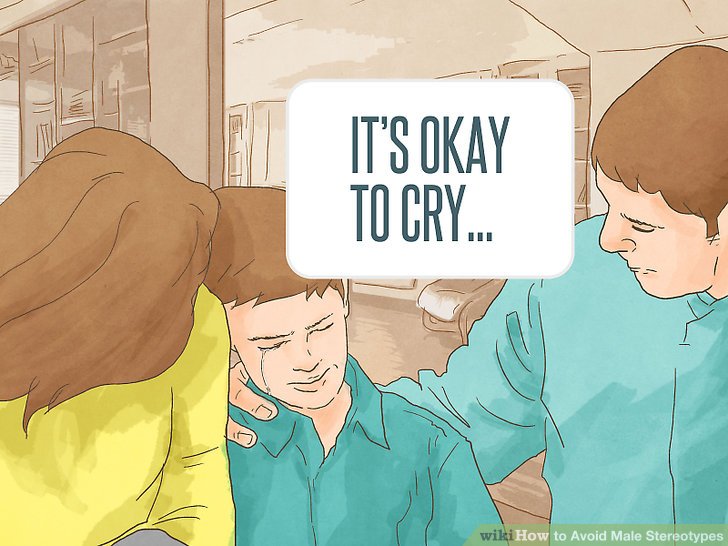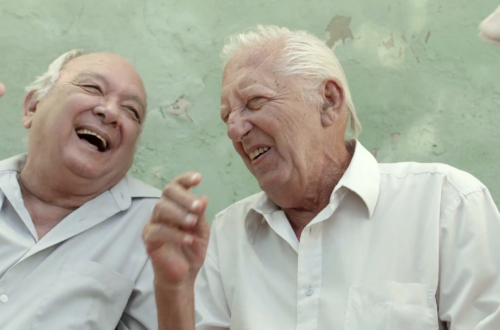We were born an unblemished self who believed we were the center of the universe, and that our needs should be instantly met. We were inherently unafraid to try, and had we fallen while taking our first steps, we sprung back up and tried again. Our determination was endless, and to an extent, we were fearless in our exploration of a world the size of which grew as we did, and the possibilities of which were as endless as our own.
At some point, many of us were infested with anxiety, negativity, and cruelty, and we were no longer unblemished.
As children we viewed ourselves and the world through the lens of caretakers, be they parents, grandparents, or teachers, and we formulated an identity, and a sense of the world through their lenses. Some of us learned to see ourselves through the lens of anxiety, some through a lens that filters out feelings, and the most unfortunate learned through the distorted lens of abuse. The result is a running internal narrative of negativity, self-doubt, and anxiety.
When children see the world through the lens of anxious parent, they begin to believe the world is unsafe, and their inherent exploratory instincts become buried under constant reminders to “stay close”, “be careful” or “don’t touch that.” Many parents do not understand that their attempts to manage their own anxiety about children’s safety might keep children safe in the moment, but teaches them the worst is not only possible, but likely. If you find yourself afraid to travel, go on amusement park rides, or try new foods, chances are you were taught avoidance by an anxious caregiver. If you think about it, when we are babies and toddlers, we tried pretty much anything, but somewhere along the line we learned to be unreasonably fearful, and the cost is quality of life.
Other children are taught their needs, physical or emotional, are unimportant, and often withhold them in relationships. Remember that babies have no compunction about screaming until they are fed, changed, or picked up, but many of those babies became adults reticent to ask to express their needs because an admonishing voice within says, “don’t be a bother.” Sometime between infancy and early childhood, those children were told to “wait” or “go ask…”. It’s easy for kids to think themselves a bother when their needs are shoved to the side, and it is worse when those needs are related to emotions. Show me a person who refuses to reveal emotional needs in their relationships, and I will show you a parent who told a child, “you’ll be fine, “stop crying”, or “go to your room” when emotion was expressed.
Note to Parents: This is not a blame game. It’s important to note these forms of communication take place in enough generations to warrant blaming either everyone, or no one. The point is to create a generation that changes the pattern.
Nothing creates a more negative inner voice than an abusive parent who calls a child “stupid” for failing a test, “failure” for not making a team, or who makes underhanded comments about weight, wardrobe, or anything else perceived as a negative reflection on the parent. It doesn’t take much for these messages to be weaved into the fabric of a child, and create a negative self-image that leads to depression, social anxiety, or compulsivity.
What I hope to accomplish with clients inhibited by fear and self-doubt is to teach them to not only tell their inner critic to the “shut the fuck up”, but to exorcise it from their mind, and replace it with their own voice. Therapists help clients learn about themselves through a healthy relationship that allows for the identification of passions, gifts, and personality traits. In therapy, clients have the opportunity to explore without fear of judgment, and gain a more realistic sense of self. Clients are encouraged to express their own thoughts, and clinicians will challenge the legitimacy of all those that are riddled with negativity. Clients soon learn that what they previously held was a distorted view of themselves. When it comes to parent/child relationships that continue into adulthood, therapists help clients create boundaries that ensure negative voices are kept out. In essence, we don’t just want to just quiet the inner critic, but replace it with a voice that speaks with positivity and reason.
Replacing our learned, negative inner voice with our authentic voice creates increased socialization, allows for healthy risks, and improves mood while reducing anxiety. Even if the old voice is never entirely removed, there remains the possibility of responding to it in a more adaptive way. Once clients experience the possibility of positive results, relationships blossom, anxiety and depression wane, and life becomes as fulfilling as it is meant to be.





